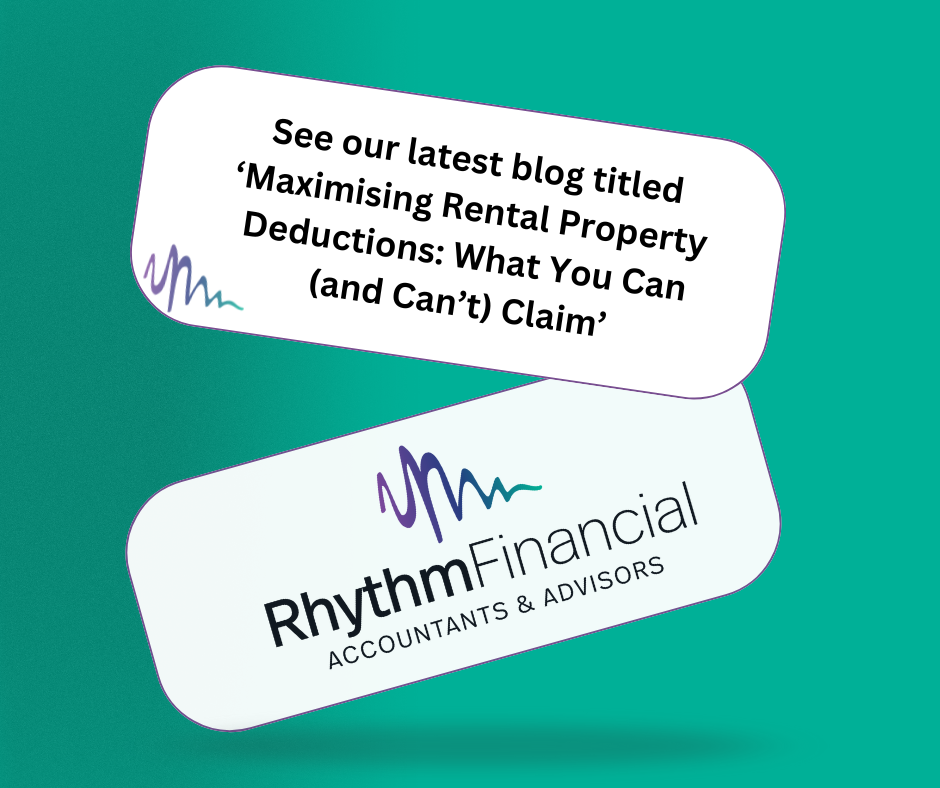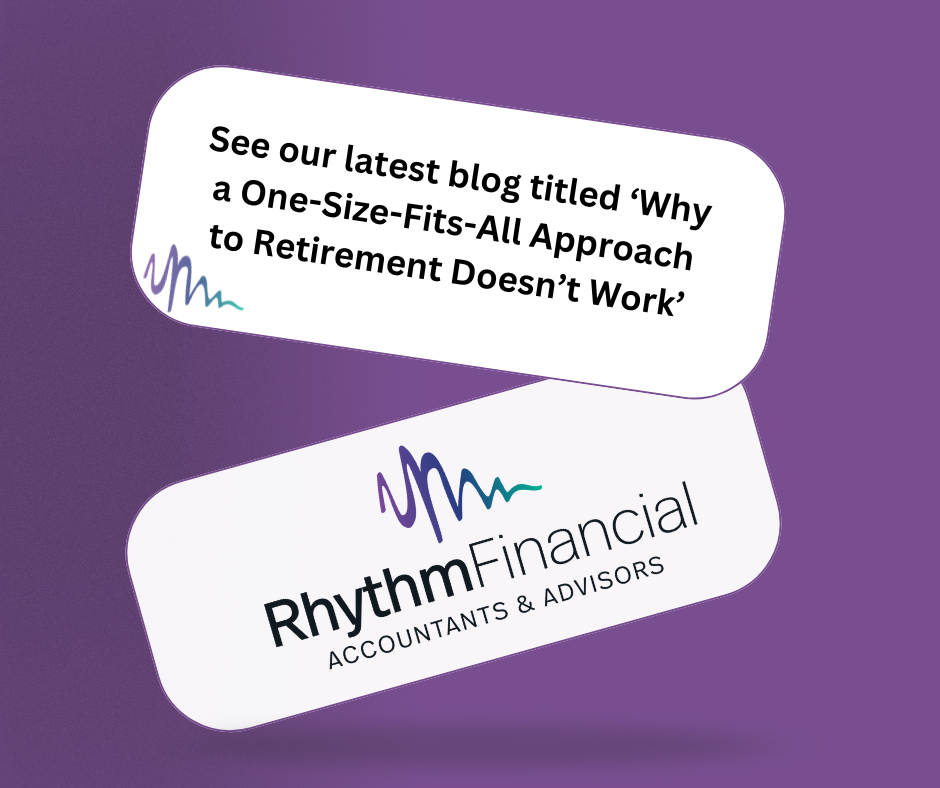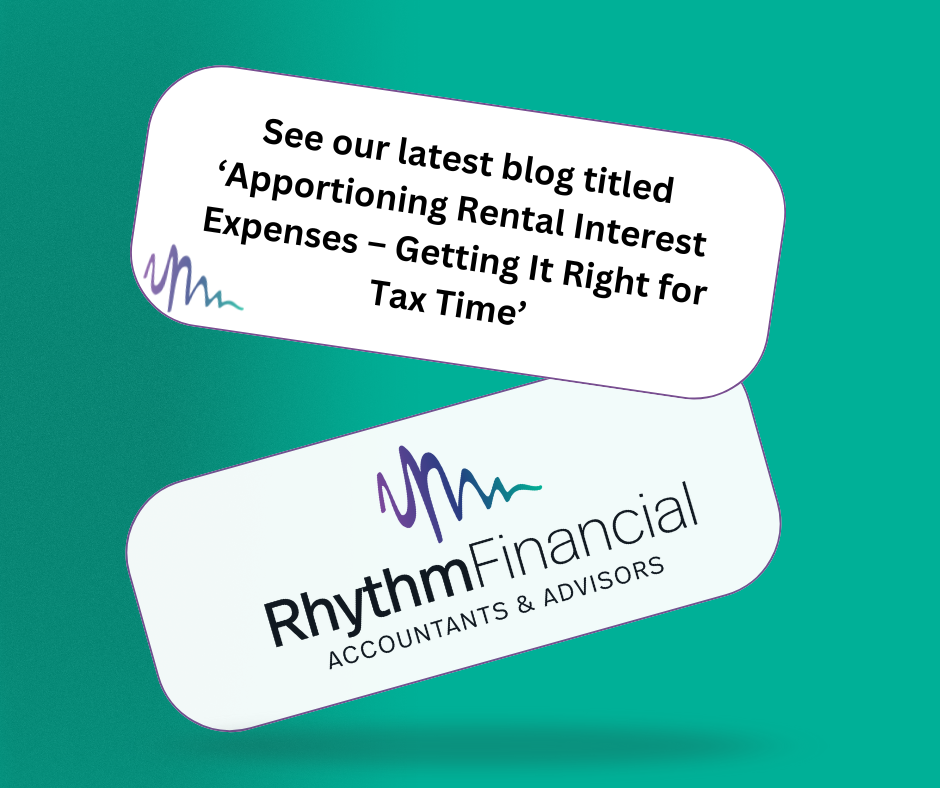Maximising Rental Property Deductions: What You Can (and Can’t) Claim
- Rhythm Financial
- Jul 30
- 3 min read
Owning a rental property can be a great way to build wealth, but it also comes with a range of tax responsibilities. As a landlord, understanding what you can and can’t claim as a deduction is key to maximising your return while staying on the right side of the Australian Taxation Office (ATO).
The ATO has clear guidelines around rental income and allowable deductions. Here’s what you need to know.
Declare All Rental Income
Before diving into deductions, it’s important to understand that all rental-related income must be declared. This includes:
Rent received from tenants
Rental bond money retained (e.g. for damage or unpaid rent)
Insurance payouts related to the rental property
Reimbursements for expenses (like water or electricity)
Government rebates or grants
Income from short-term rental platforms (such as Airbnb or Stayz)
Whether you’re renting out a property long-term or casually letting it during holidays, income must be reported in your tax return for the year it was received.
What Can You Claim as a Deduction?
Here are some of the most common deductible expenses landlords can claim:
Interest on Loans – You can claim the portion of interest paid on your loan used to purchase, renovate, or maintain the property (but not the principal).
Council Rates and Water Charges – If you pay these costs as the landlord, they are deductible.
Repairs and Maintenance – Costs for fixing damage or wear and tear from tenants are deductible. However, improvements or renovations are treated differently.
Property Management Fees – Including agent commissions, advertising for tenants, and legal expenses related to leases.
Depreciation – On eligible assets like appliances, carpets, and hot water systems, using a quantity surveyor’s depreciation schedule.
Insurance Premiums – Including building, contents, and landlord insurance.
Travel Costs – If you incur travel costs for inspections or maintenance, these are no longer deductible for most individuals from 1 July 2017 (with some exceptions for corporate landlords).
Pest Control, Cleaning, and Gardening – Necessary upkeep expenses can be claimed, provided they are directly related to the property’s rental.
Be Careful with Capital Works and Improvements
It’s important to distinguish between repairs and capital improvements. While repairs can be claimed immediately, improvements like replacing a kitchen or adding a deck must be claimed over several years through capital works deductions. This is a common area where landlords get tripped up.
Part-Year or Private Use? Adjust Accordingly
If the property was only rented for part of the year or used personally at any time, you can only claim deductions for the portion of the expenses that relate to the rental period. Likewise, if you rent out part of your home (e.g. a room or granny flat), you must apportion expenses fairly.
Keep Records
To back up your claims, keep detailed records of all income, expenses, contracts, and receipts. The ATO requires records to be kept for at least five years, and being able to substantiate claims is crucial in the event of an audit.
By understanding your obligations and entitlements, you can make your investment work harder for you, both at tax time and over the long term.
Speak to our office to ensure your rental property deductions are accurate, compliant, and fully optimised.

Disclaimer For External Distribution Purposes
The information contained in this publication is for general information purposes only, professional advice should be obtained before acting on any information contained herein. The receiver of this document accepts that this publication may only be distributed for the purposes previously stipulated and agreed upon at subscription. Neither the publishers nor the distributors can accept any responsibility for loss occasioned to any person as a result of action taken or refrained from in consequence of the contents of this publication.




Comments